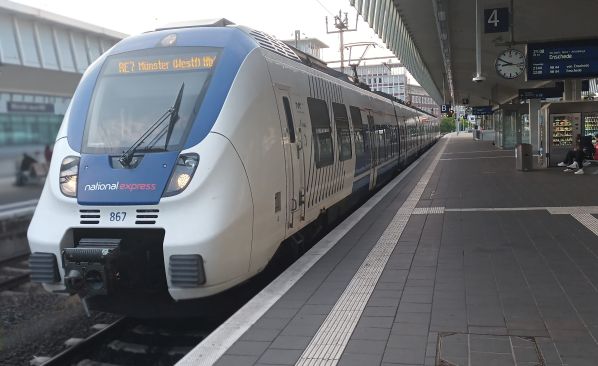MOFAIR, the association of German private passenger operators, has called for DB Network to reduce track access charges by 20% in compensation for recent poor infrastructure performance.
“In view of the massive economic consequences that poor infrastructure has for the users of the network, it would be very decent of DB Network to unilaterally forego a flat rate of 20% of train path revenue for the time being,” says Mofair president, Mr Tobias Heinemann.
“If the roof is leaking, a tenant would not have to pay the full rent.”
Mofair says that the delays and cancellations currently being experienced by passengers and freight customers are particularly devastating at this time when the rail industry needs to be seen as a credible solution to mitigating climate rather than a problem.
The government’s recent initiative to promote rail travel through the introduction of a €9 monthly ticket has also put the efficiency of the rail system in the spotlight, the association says.
According to Mofair, the lack of coordination between DB Network’s ongoing work programmes has been highlighted by recent incidents including the closure of all routes between Berlin and the Baltic one weekend.
Ukrainian grain stranded
It also cites a freight train carrying grain from Ukraine, which was stranded at Bad Schandau on the Czech border for three weeks as no alternative route was available to avoid infrastructure work.
In February 2021 the Federal Court of Justice ruled that DB Network is liable for the economic damage caused by the poor performance of its rail infrastructure.
The courts have yet to determine to what extent this would apply, but the economic consequences of poor infrastructure are significant, Mofair points out.
Mofair’s members include Abellio, Flixtrain, Go-Ahead, MEV, National Express, Netinera, RDC Germany and Transdev.
The association notes that in the case of local passenger services operated under contract, the fees that the public transport authority pays to the operator are reduced if a certain punctuality threshold is not reached, regardless of whether the operator has any control over the cause of the delay or not.
In the case of long-distance passenger traffic and freight sector, “constant delays simply result in less revenue,” says Mofair. Passengers stay away, while freight customers simply move their consignments back to road.
Mofair describes the current stare of rail infrastructure as “catastrophic” in places and says that the management of DB Network is to blame for the lack of coordination between the projects it is undertaking and its own regional departments.
There is also a lack of spare parts, the constant inability of DB Network to meet its own project deadlines and staffing issues that have left signalboxes unmanned, says Mofair.

